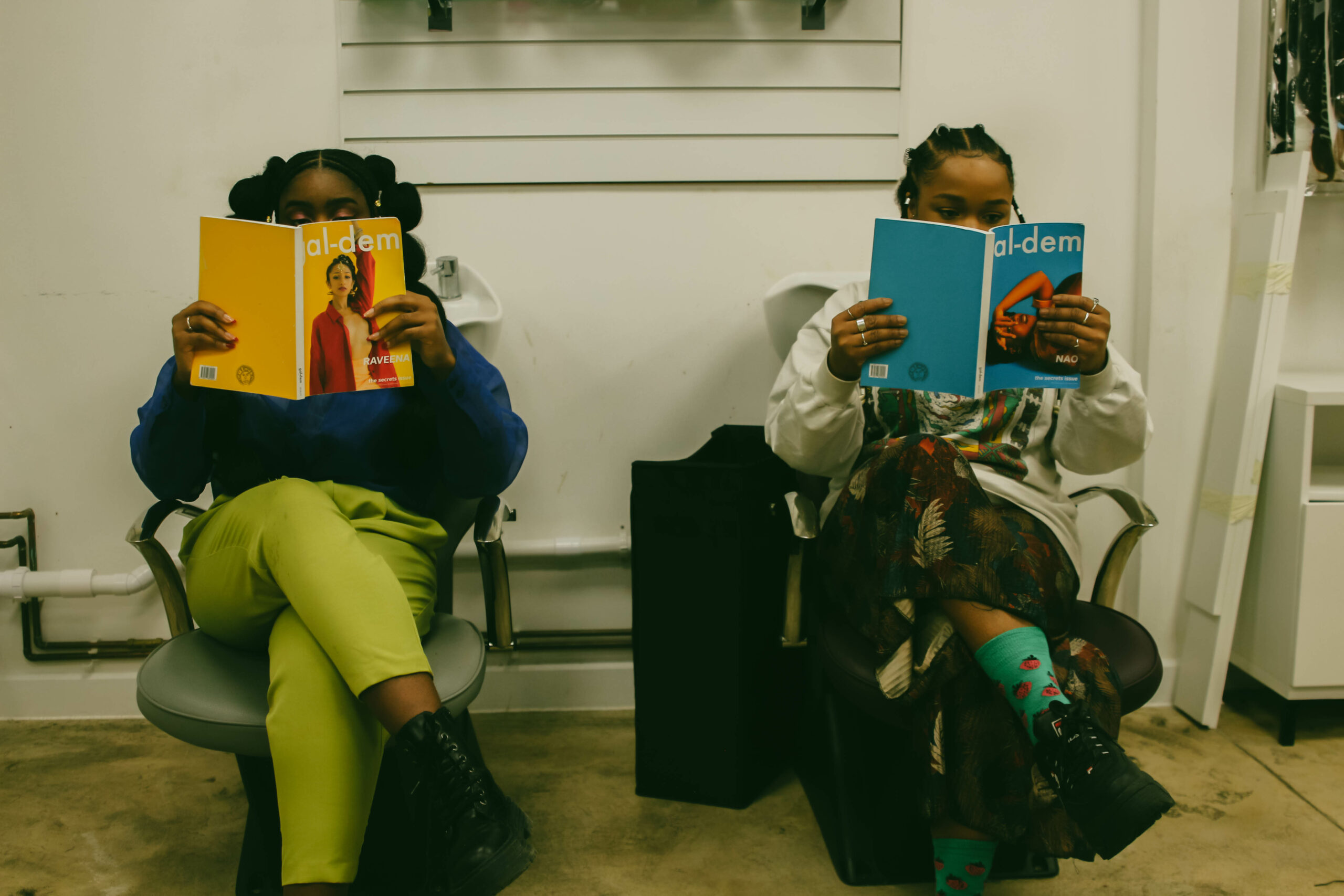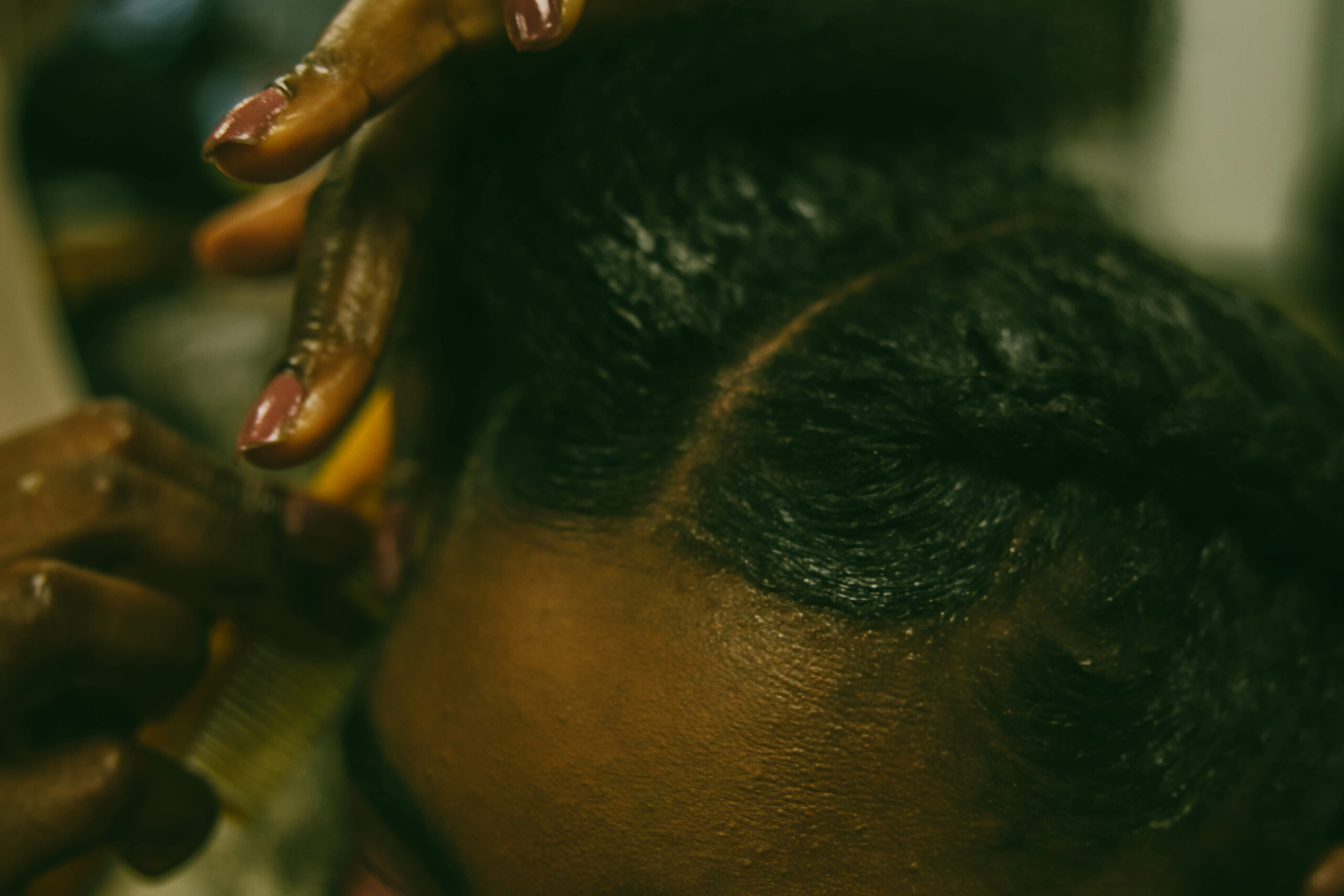
Photography by Yossy Akinsanya for gal-dem / Peckham Palms
Afro Answers: are relaxers making a comeback?
Trichologist Ebuni Ajiduah explores why some people are leaving the natural hair community behind and returning to the 'creamy crack'.
Ebuni Ajiduah
17 Mar 2022
There must have been something in the water in the early 2010s as Black women globally were skipping long-held salon appointments to visit a barber and shave their heads. Big chop fever was actually a pandemic because if one of your friends did it, it wasn’t too long before you caught the natural movement bug and followed suit.
Relaxer boxes sat waiting on dusty shelves hoping the fad would pass, but it didn’t seem likely. However, the real Covid-19 pandemic and the closure of salons seem to have reminded people of simpler times.
Faced with the prospect of sole responsibility for their haircare as braiding and sew-ins became almost outlawed and getting products felt like sourcing contraband as ‘Black hair shops’ were deemed non-essential, the creamy crack looked better than ever.
I recently ran a poll on my Instagram stories to find out if and what was turning the tide, and 20% of respondents said they would consider relaxing again. Reasons varied but there were lots of recurring themes. “I miss the creamy crack. Natural hair is long!!!!” said one respondent.
“Initially enticed by promises of thick hair, bountiful edges and glistening curls, it soon became a cesspit of texture discrimination, misinformation and failed twist outs”
Nostalgia and ease came up the most. Whatever your experience with them, relaxers often represent a simpler time. Yes, they burned and smelt bad but the rules were few and universal. You knew what to do and when. No complicated or convoluted routine.
Along with the disappointment and upset caused by joining the natural hair community, it’s easy to see why some Black women are turning their back on it. Initially enticed by promises of thick hair, bountiful edges and glistening curls, it soon became a cesspit of texture discrimination, misinformation and failed twist outs.
Founder of FRO, Zainab Sanusi commented: “Like each group/stylist is heavily pushing their narrative/view. Ppl just want to have fun! I think the space is highly restrictive and vibe/tone is way off for younger people.”
If natural hair is getting long but your hair isn’t, relaxing again might feel like the only option (it isn’t, book a coaching session with me and let’s talk). It doesn’t have to be an either/or: both worlds should be able to mix and share without feeling exclusionary.
My hair is gone and it is never coming back
While most people enjoy a good before and after pic, for some, it can be a stark reminder of what they will not be able to achieve.
Alopecia is super common and most people will experience it in some form. For the majority, this may start and finish before it has a chance to become noticeable to the outside world. But for others, once it starts it just won’t stop.
Permanent types of alopecia, or when the hair loss is fast, sudden or in prominent areas, can have a major impact on self-esteem and leave people scrambling for solutions and vulnerable to snake oil salespeople.
I remember the first time I had to tell my client her hair was not returning. It was obvious to me almost immediately upon seeing her scalp, but she sat in front of me pleading not to give her the worst news and I saw how heartbreaking the situation was for her.
“I remember the first time I had to tell my client her hair was not returning”
“If there is hair there is hope, and for everything else there is MasterCard.” This has become my most repeated quote as clients wait on tenterhooks for me to confirm their biggest fear. On the surface, it is a lighthearted attempt to reassure them that whatever we are facing, we have options. Hair is a visible sign that we can be hopeful of a positive outcome. No hair doesn’t mean there is no hope, but the treatments can become more expensive.
Even if the chances of you producing hair again naturally is low, there is so much choice. Medication, laser devices, topical treatments and transplants can work, while styling options, strategically placed partings, wigs and (man) weaves can help you keep up appearances.
Exploring these options will require some mental hardiness as it can take months for progress to be seen or to find the best treatment and practitioner. Plus, most hair loss services on the NHS are woefully underfunded. Losing hair should not make you a pariah, nor should it decrease your self-worth.
Talking about it can be hard but share with family or friends, have firm boundaries about how it is discussed and seek help as soon as possible.
You can listen to the experiences and journeys of Black women facing hair loss here.
Like what you’re reading? Our groundbreaking journalism relies on the crucial support of a community of gal-dem members. We would not be able to continue to hold truth to power in this industry without them, and you can support us from £5 per month – less than a weekly coffee.
Our members get exclusive access to events, discounts from independent brands, newsletters from our editors, quarterly gifts, print magazines, and so much more!
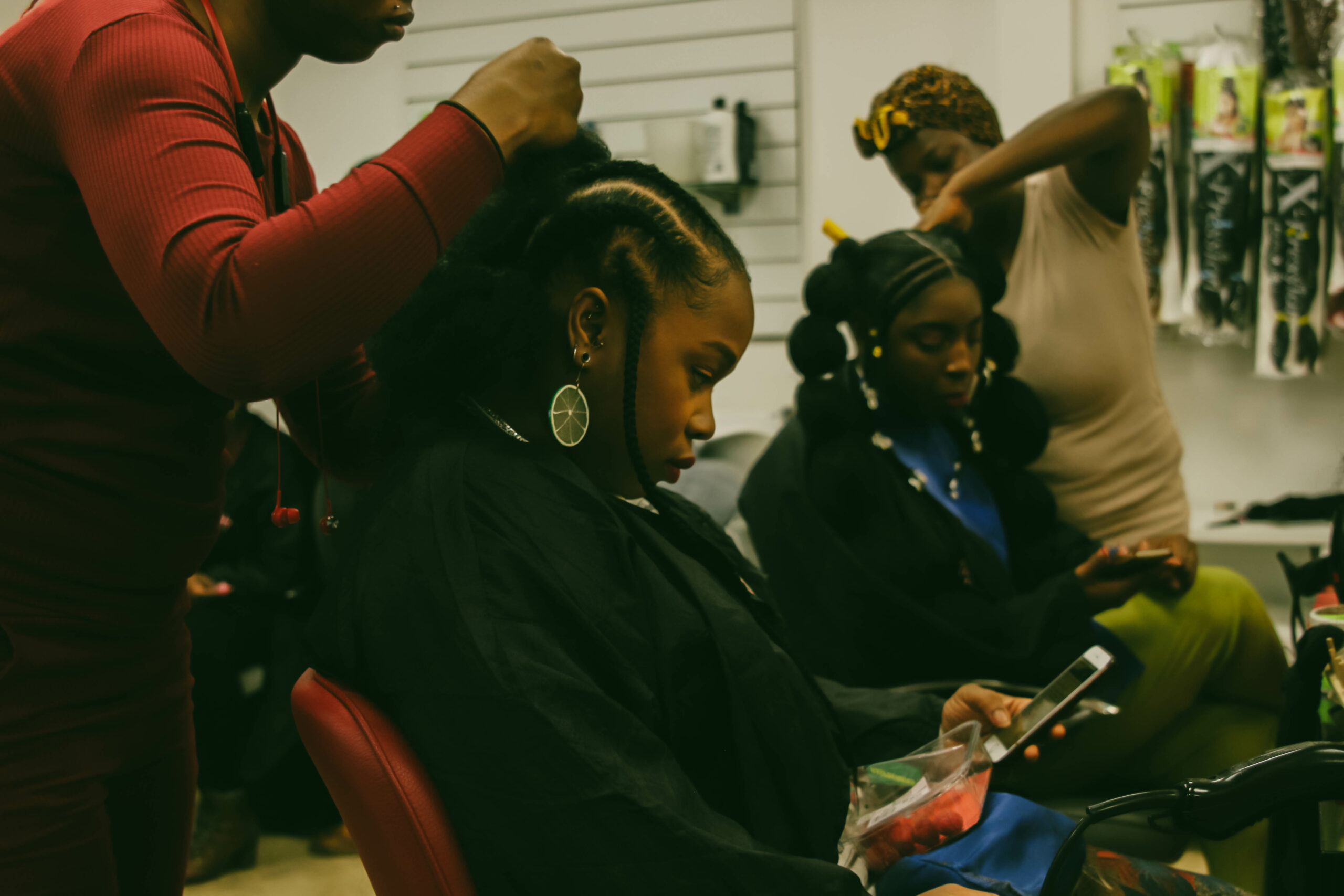
Afro Answers: why I’m giving Black women the alternative styling experience they deserve
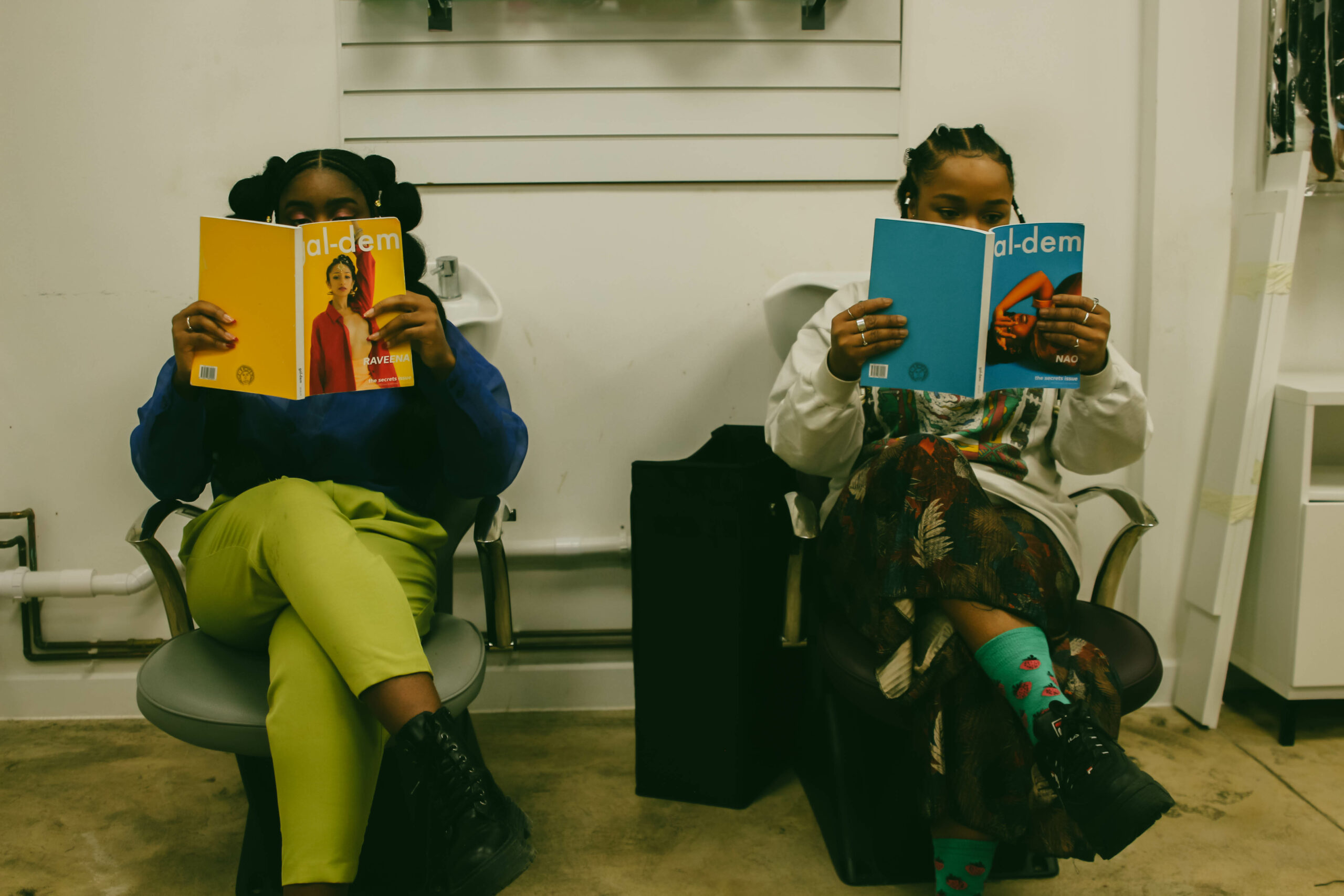
Afro Answers: why we should be having fun with our hair in 2022
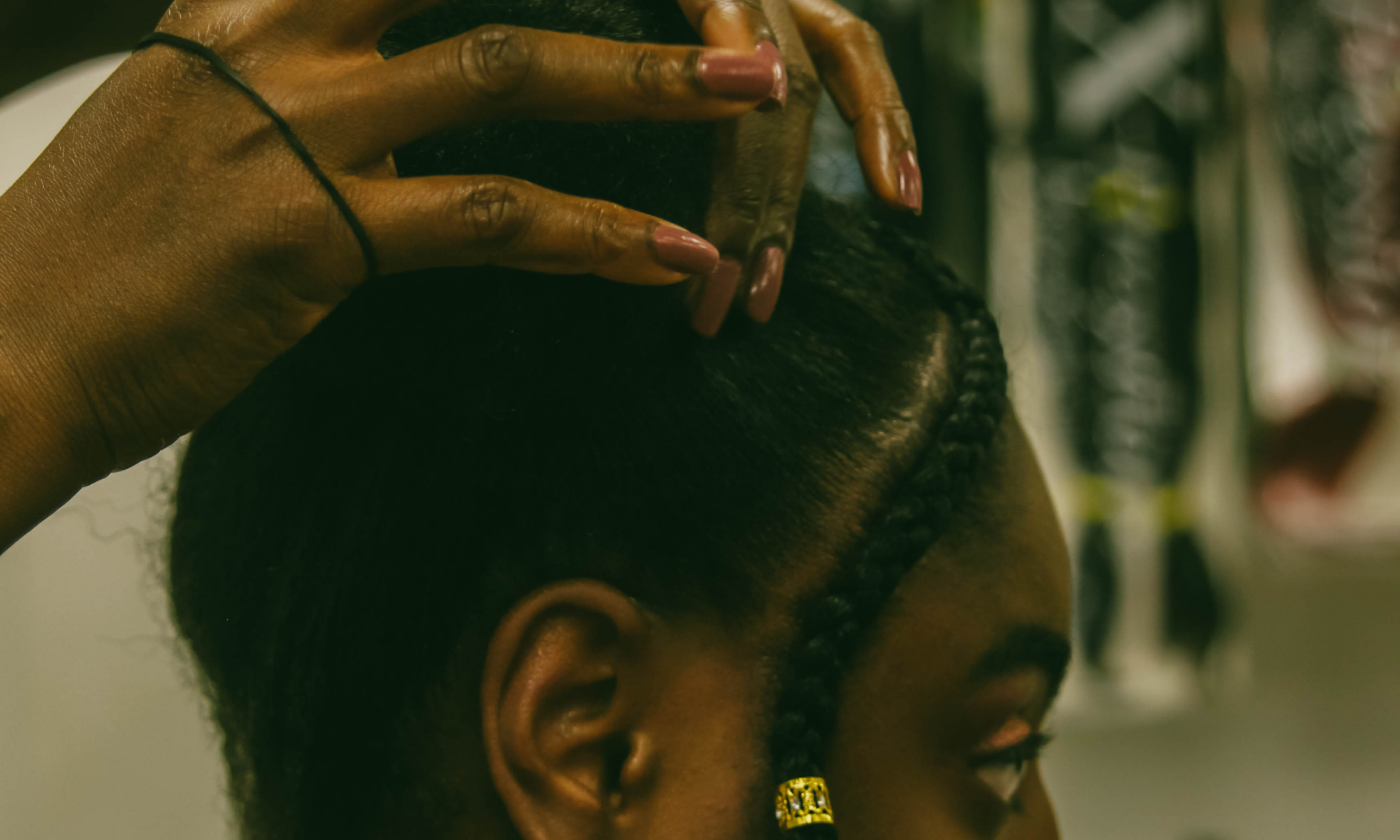
Afro Answers: what do you mean I can’t use oils or butters? And what you need to know…
